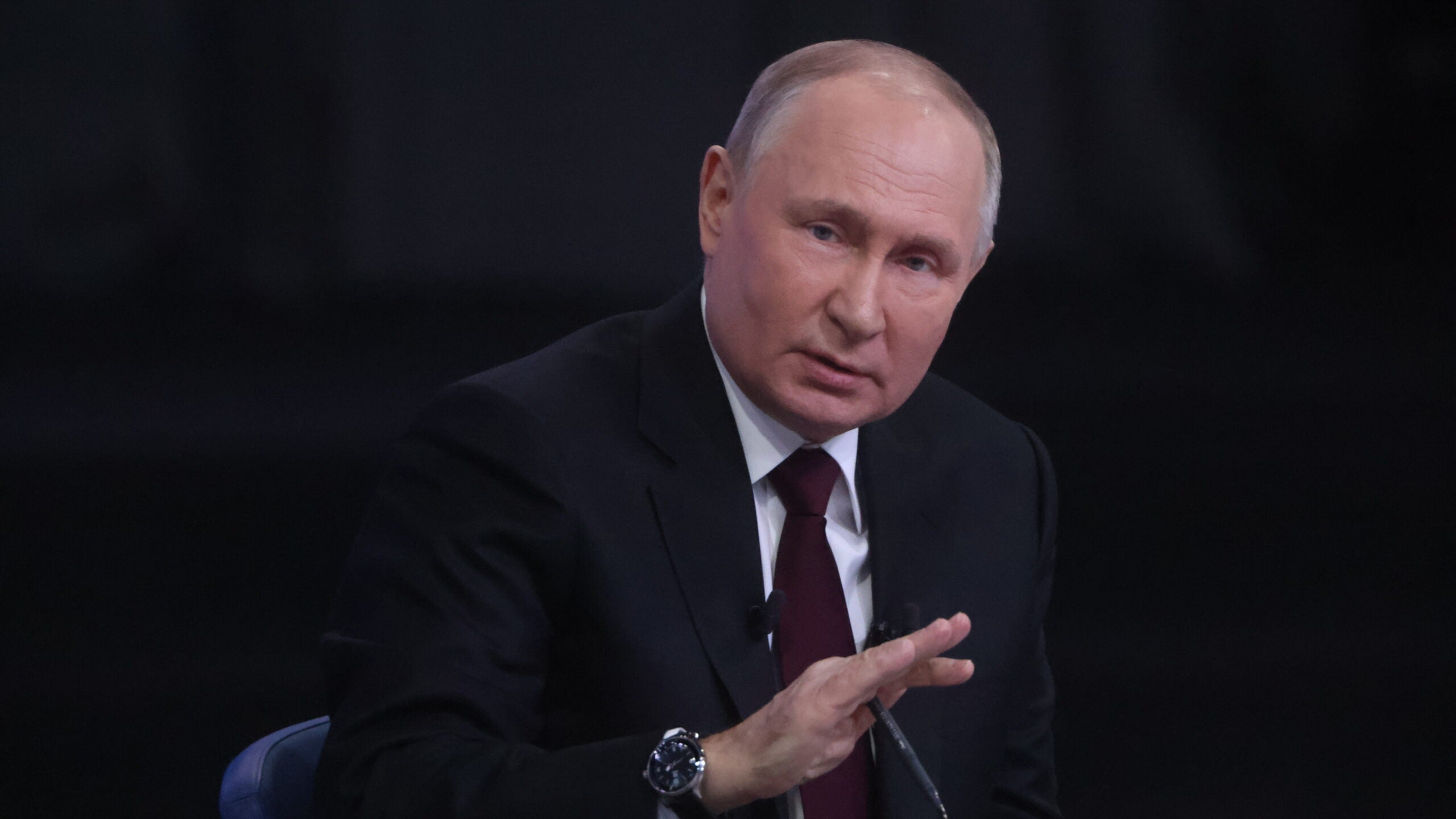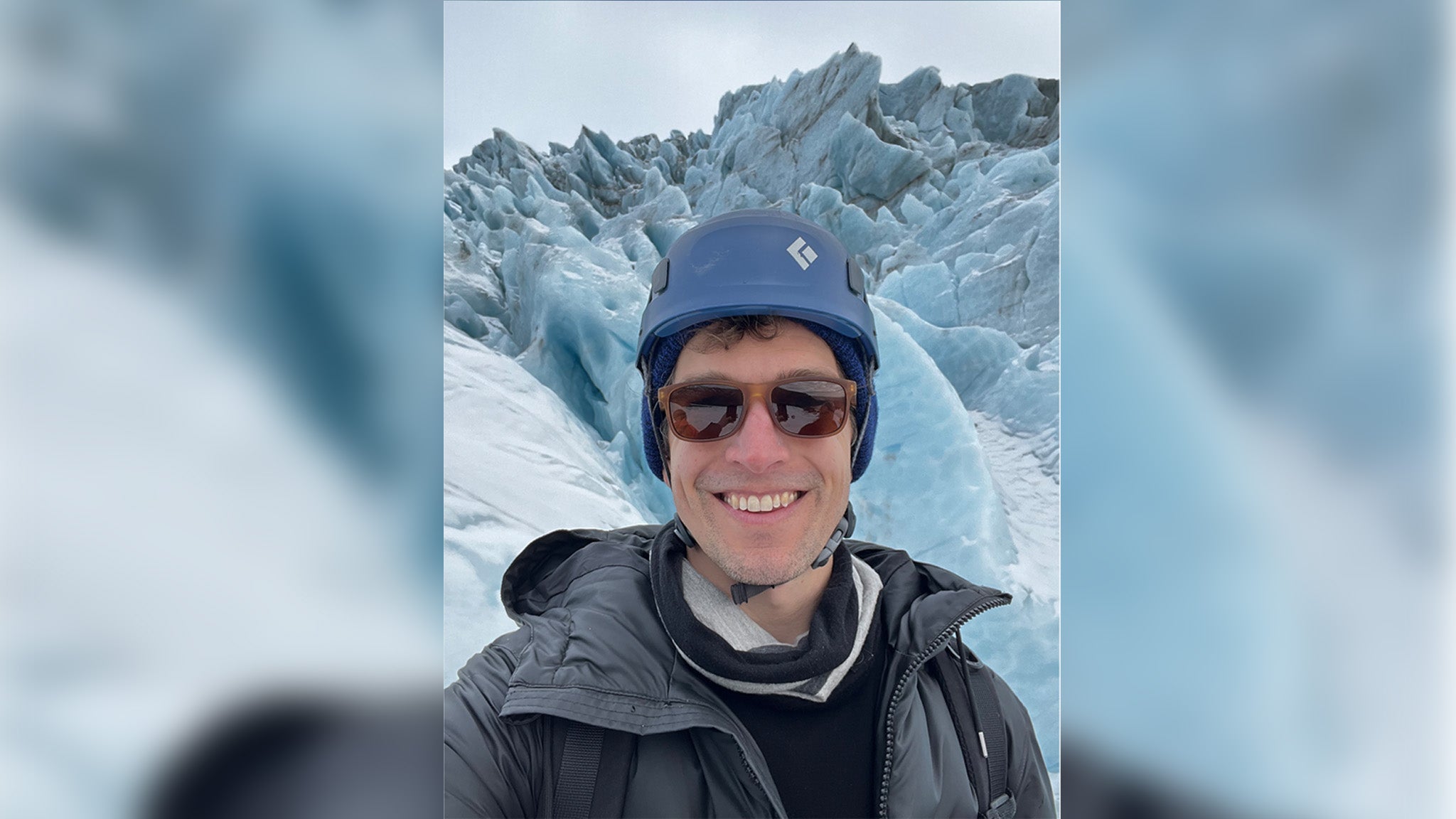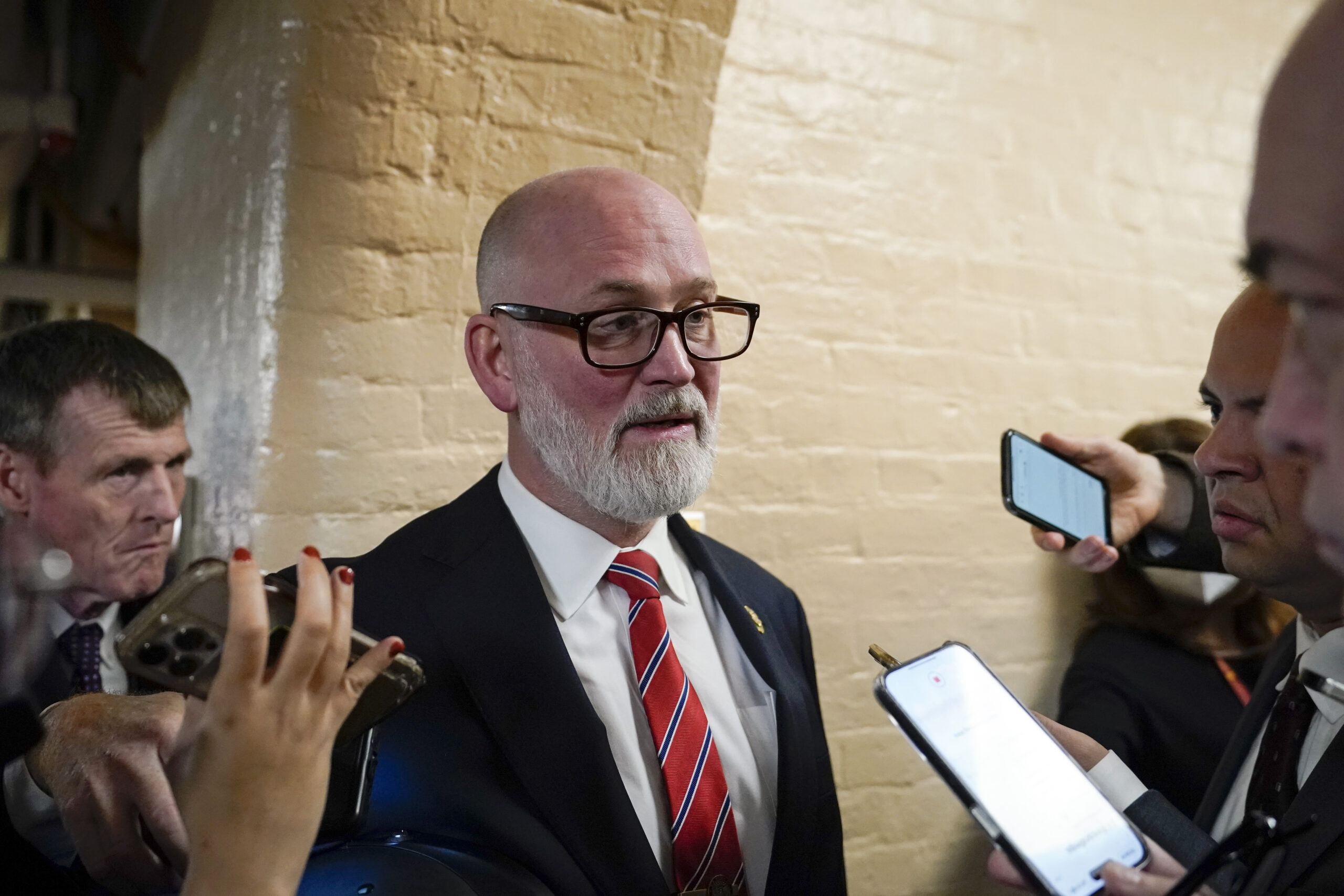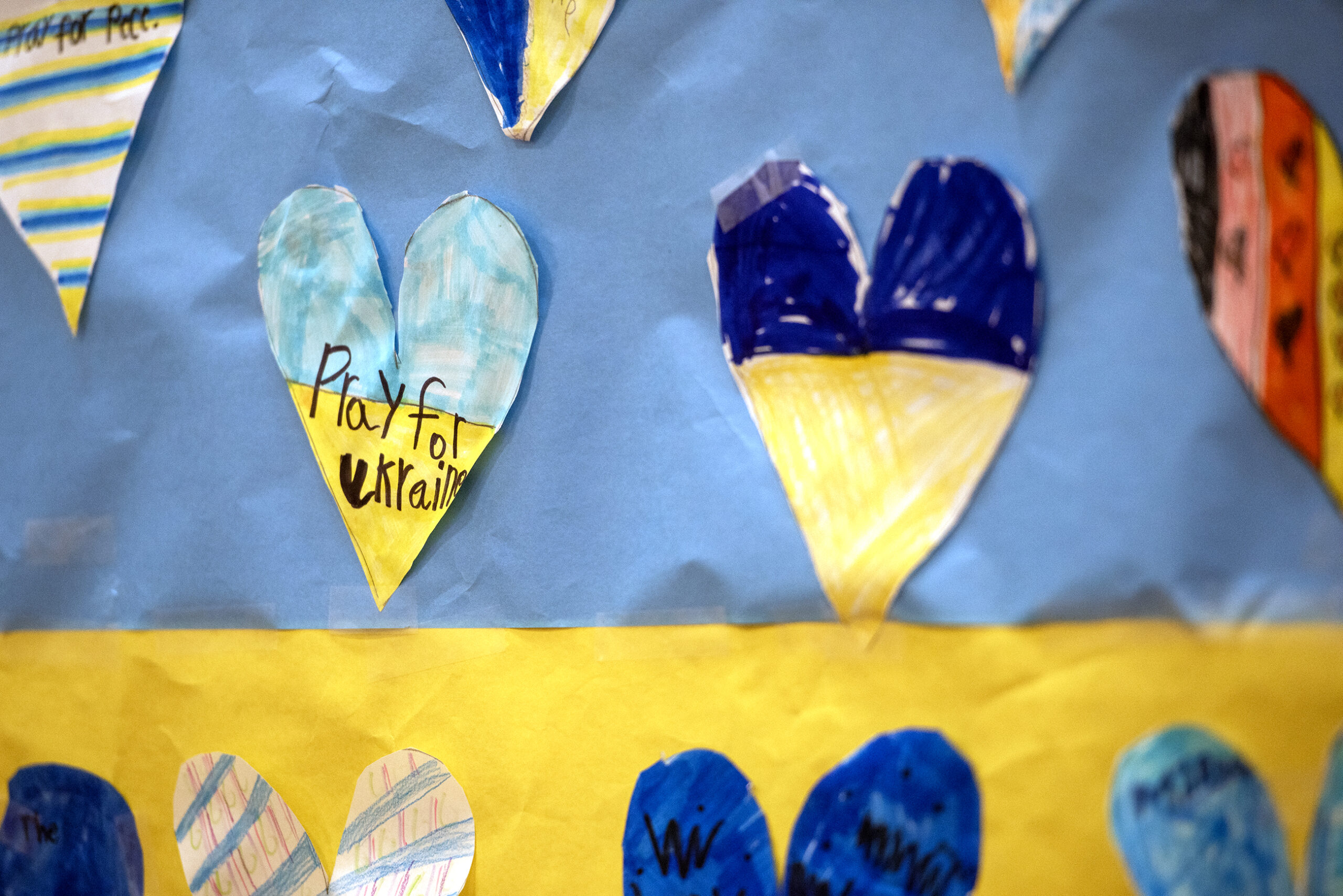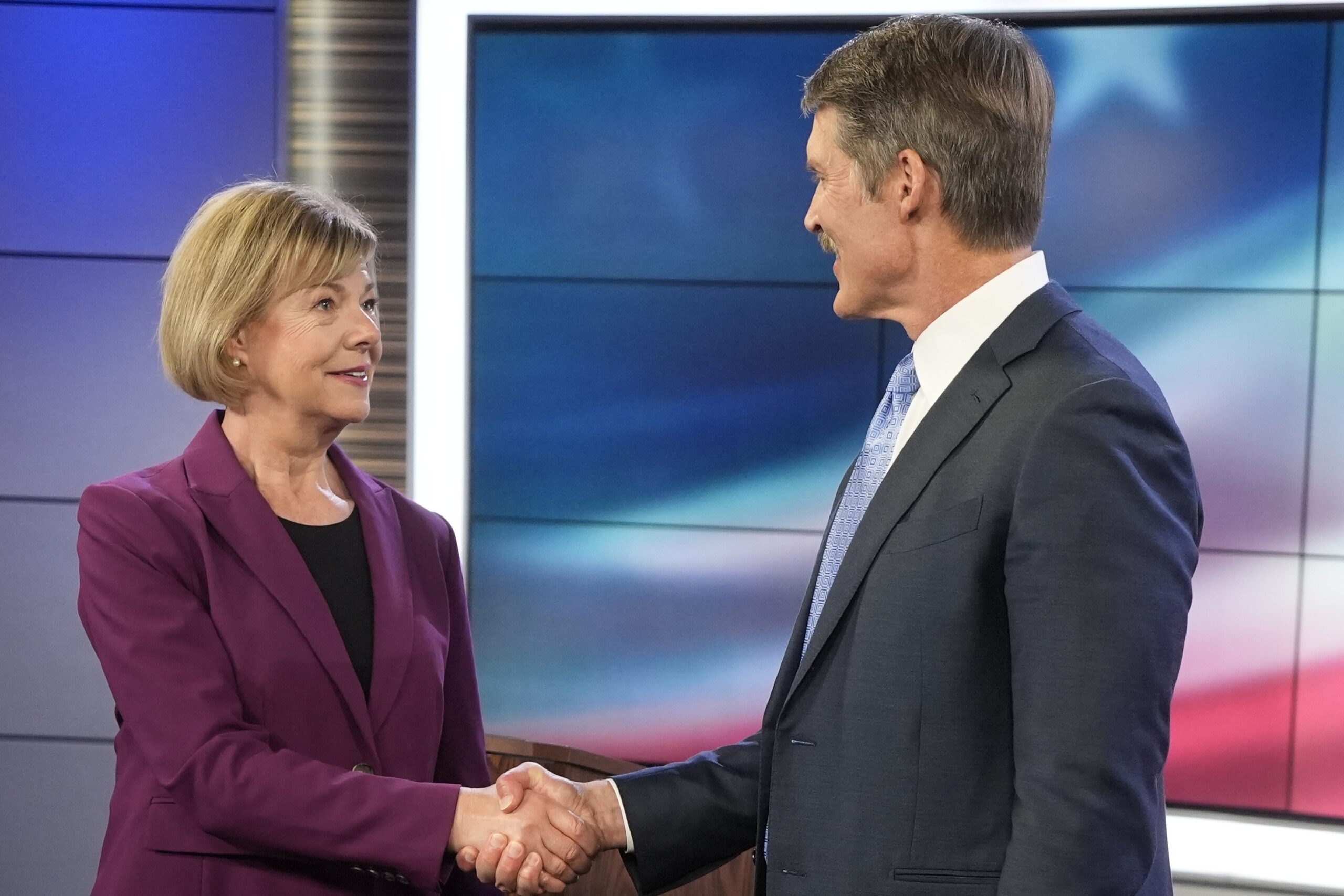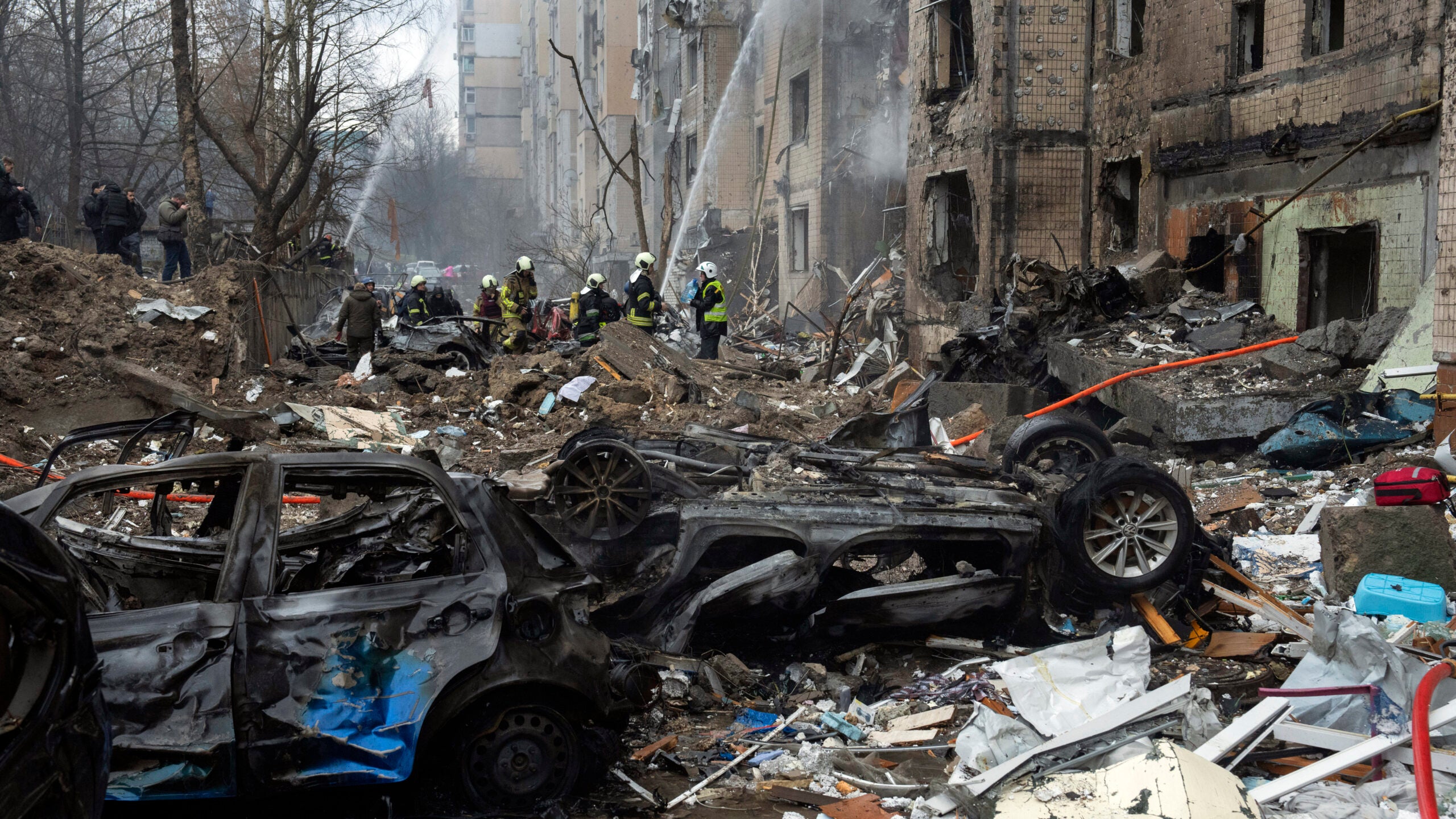MOSCOW — In a year-end, televised event, Russian President Vladimir Putin expressed confidence in Russia’s ultimate victory over Ukraine – insisting Russia would press on with the war until Kyiv either bowed to Russian demands of neutrality or faced defeat on the battlefield.
“Either we get an agreement” with Kyiv, said Putin, “or we solve this by force.”
Putin’s comments came amid a marathon four-hour press conference that the Kremlin leader combined with a so-called “direct line” call-in program for Russians.
News with a little more humanity
WPR’s “Wisconsin Today” newsletter keeps you connected to the state you love without feeling overwhelmed. No paywall. No agenda. No corporate filter.
The event was the first time Putin has fielded extended questions from either journalists or the public since he launched the full-scale invasion of Ukraine in February 2022. Putin also made his first public comments about Wall Street Journal reporter Evan Gershkovich, who has been in Russian custody since March.
The press conference — which included clearly choreographed moments of praise for the Russian leader — also came just days after the Putin announced he would stand for a fifth term in office when Russia holds elections next March.
With nearly all participating candidates openly supportive of Putin’s wartime policies and would-be critics in exile or jail, Putin is universally expected to remain in power.
The war will go on
Putin’s performance seemed timed to reflect Russia’s growing confidence about the war effort in Ukraine.
Indeed, the mere fact that Putin was on stage suggested it: the Kremlin repeatedly postponed and eventually canceled last year’s event amid repeated setbacks for Russian forces on the battlefield and an unpopular mobilization drive.
This year, in contrast, Putin pointed to Kyiv’s recent stalled counteroffensive — and waning U.S. political support — as signs that a Russian victory was all but inevitable.
“Almost along the entire front line, our armed forces, let’s put it modestly, are improving their position,” said Putin.
Putin claimed that Russia now has more than 600,000 soldiers currently serving in the war zone and assured his public that another wave of mobilization was unnecessary.
Yet when asked about the prospect for peace, Putin vowed it would only come following the full “denazification” and “demilitarization” of Ukraine – two stated Kremlin objectives at the outset of the war.
“There will be peace when we achieve our goals,” said the Kremlin leader.
He also basked in recent projections Russia’s wartime economy would grow by 3.5%, despite nearly two years of punishing Western sanctions.
“Those who thought that everything here would crash have been sorely disappointed,” said Putin.
“Difficult” talks with the U.S. continue over American prisoners, Putin said
Putin also commented on the continued detention of Gershkovich, the Wall Street Journal’s Moscow-based correspondent, who was arrested last March on espionage charges while on a reporting assignment in Russia’s Ural mountains.
“You say why not return them to their homeland? Well, why then did they violate laws on Russian territory?” said Putin, when asked a question about freeing both Gershkovich and former U.S. Marine Paul Whelan, another American currently in jail on a spying-related charge.
Putin insisted Moscow had “not refused” a deal during recent prisoner swap negotiations that the White House insisted broke down over Russian objections.
Rather, Putin acknowledged “difficult” talks with the U.S. were ongoing, but claimed a deal acceptable to both sides had yet to be reached.
“I hope we find a solution,” said Putin. “But, I repeat, the American side must hear us and make an appropriate decision, one that suits the Russian side.”
Putin’s comments came as a Moscow court upheld an earlier court ruling to hold Gershkovich in pre-trial detention until at least Jan. 30, 2024.
Whelan is currently serving a 16-year sentence in a remote Russian prison colony.
The U.S. maintains both men are “wrongfully detained.”
“Although Evan appeared as sharp and focused as ever today in the courtroom, it is unacceptable that Russian authorities have chosen to use him as a political pawn,” said U.S. Ambassador to Russia Lynne Tracy in a statement following Thursday’s hearing.
“As the holidays approach, our thoughts are with Evan and Paul Whelan, as well as their families, friends, and colleagues,” said Tracy. “Both of these men deserve to be at home with their families.”
Questions from the public gave Putin a chance to engage in something akin to retail politics
Coming in the wake of Putin’s announcement that he will seek reelection in March, the press conference had the air of a campaign event.
Putin stuck to by now familiar themes, such as Russia as a bulwark of conservative traditional values – arguing that Russia, rather than being isolated, was leading a global movement against a decadent, liberal West.
“In many cities of Europe and the U.S., not to mention other parts of the world, a lot of people around the world think we’re doing things just right,” said Putin.
Questions from the Russian public also offered the Kremlin leader a chance to engage in something akin to retail politics, as Putin seeks to extend his 24-year hold on power.
“What are you reading?” went one question. Putin’s answer: the 19th-century Russian poet and novelist Mikhail Lermontov, often referred to as the poet of the Caucasus, after the setting of much of his work.
“What did you want to be, growing up?” was another question.
“An intelligence officer. And I became one,” answered Putin, a former KGB officer.
Russians had also submitted videos pleading with Putin to intercede on issues such as a lack of heating, hot water, rotting infrastructure and inflation.
In one video, a pensioner from the southern region of Krasnodar asked Putin — addressing him as “my dear president” — to look into a recent spike in the price of eggs.
Putin acknowledged the government had failed to address the issue properly and vowed to do better. “Putin apologizes for higher egg prices,” immediately read the headline on a national newspaper’s website.
Meanwhile, less comfortable text messages occasionally flashed on a back wall screen and across social media.
“Tell us, when will our lives get better?” read one.
“Why is your ‘reality’ different from our lived reality?” asked another.
Putin made no indication he saw them.
“We all support your decision to participate in the elections next year,” said Alexander Orlov, a young TV reporter from the Russian Far East as he prefaced a query about government investment in his native, remote Kolyma region.
“Because as long as I can remember,” added Orlov with a nervous laugh, “you’ve been in power.”
9(MDAyMjQ1NTA4MDEyMjU5MTk3OTdlZmMzMQ004))
© Copyright 2025 by NPR. To see more, visit https://www.npr.org.9(MDAyMjQ1NTA4MDEyMjU5MTk3OTdlZmMzMQ004))

